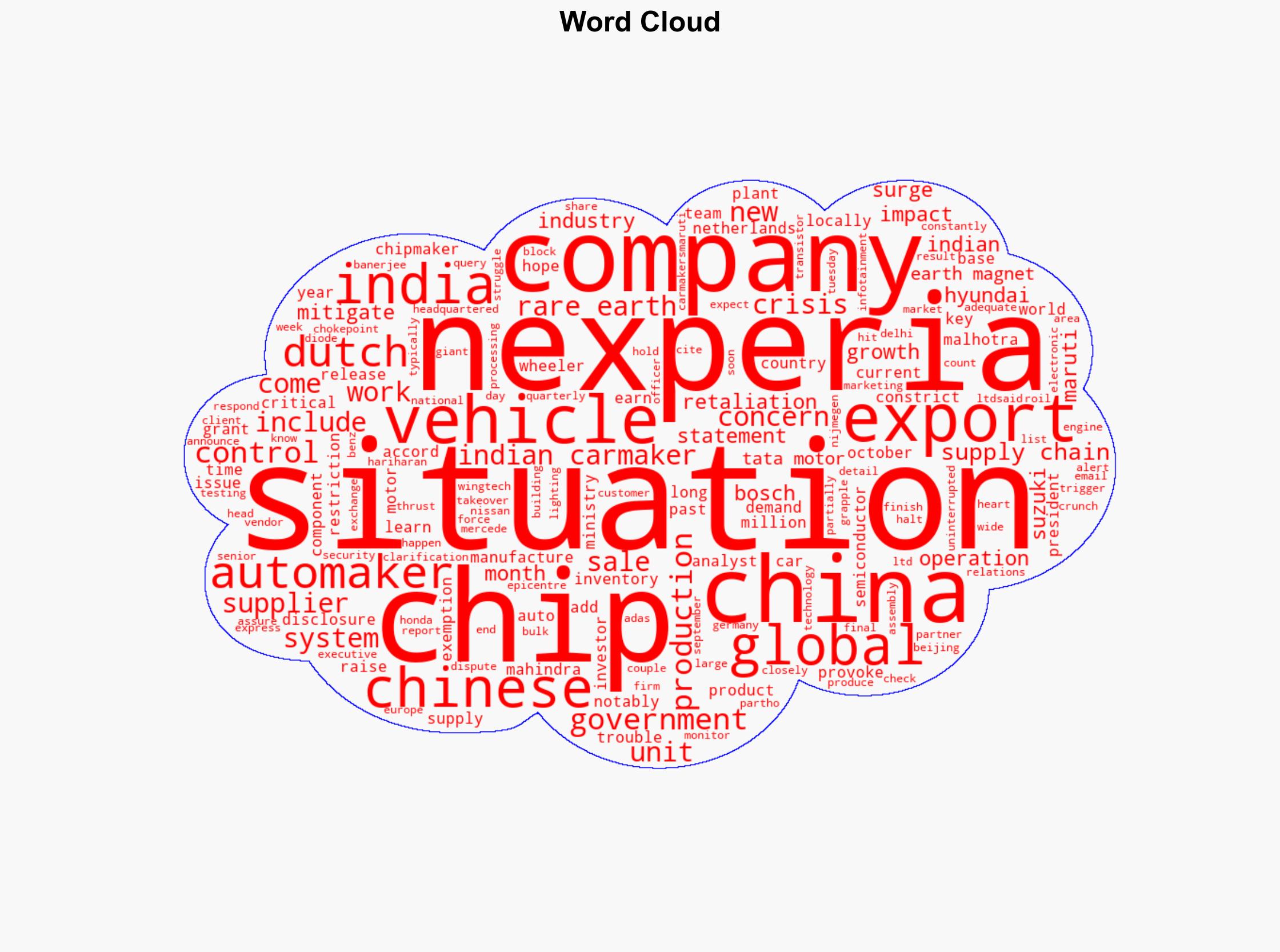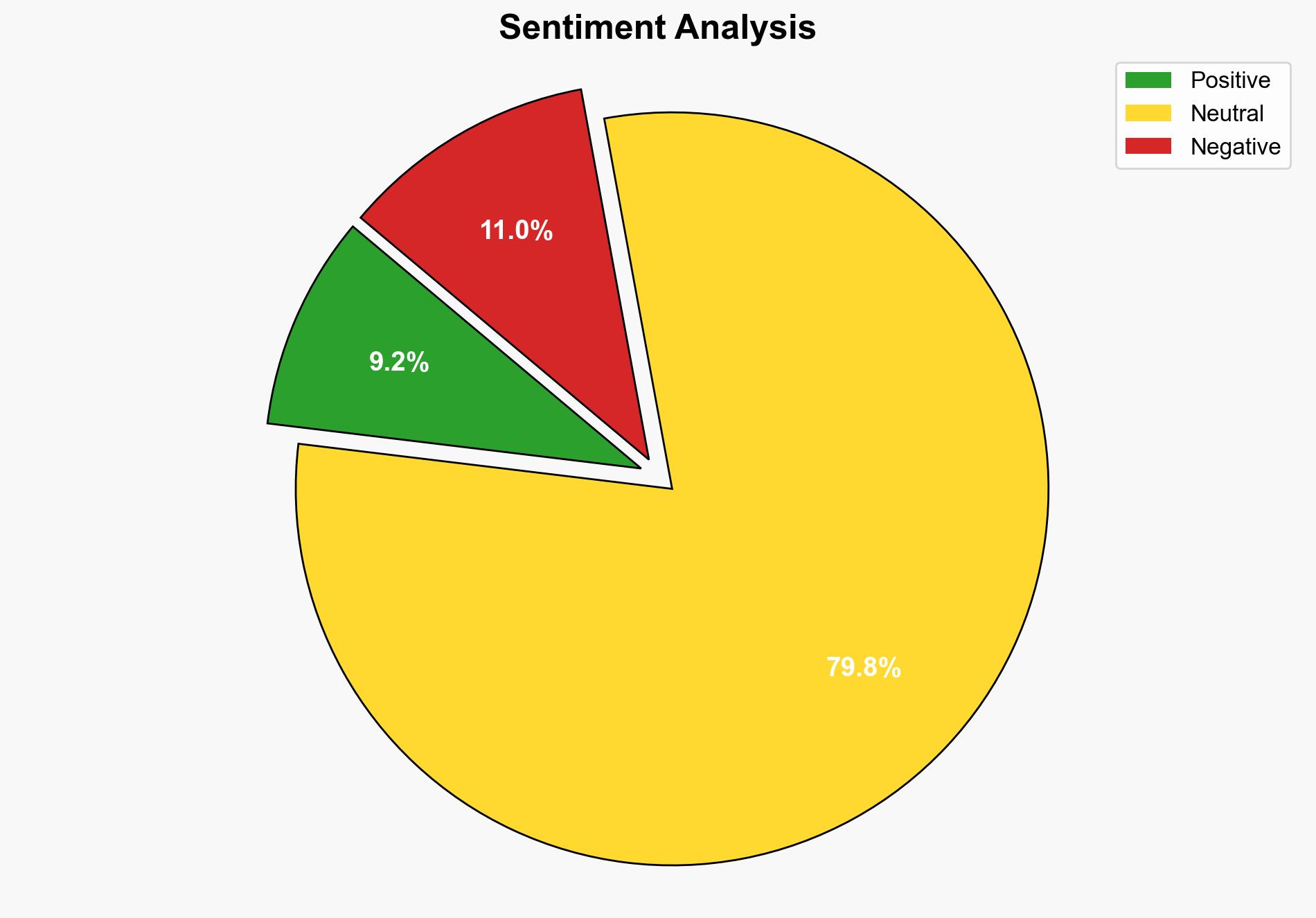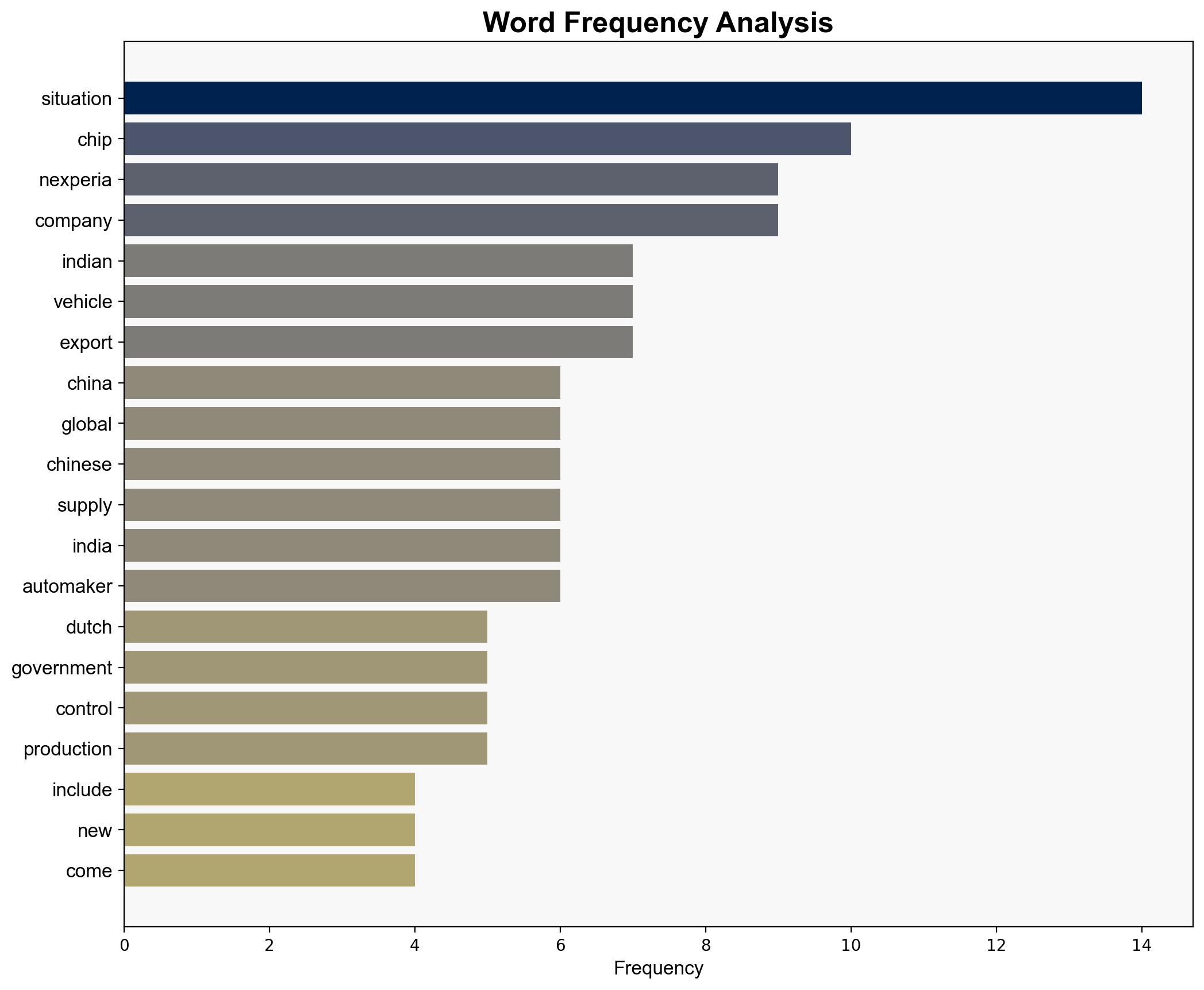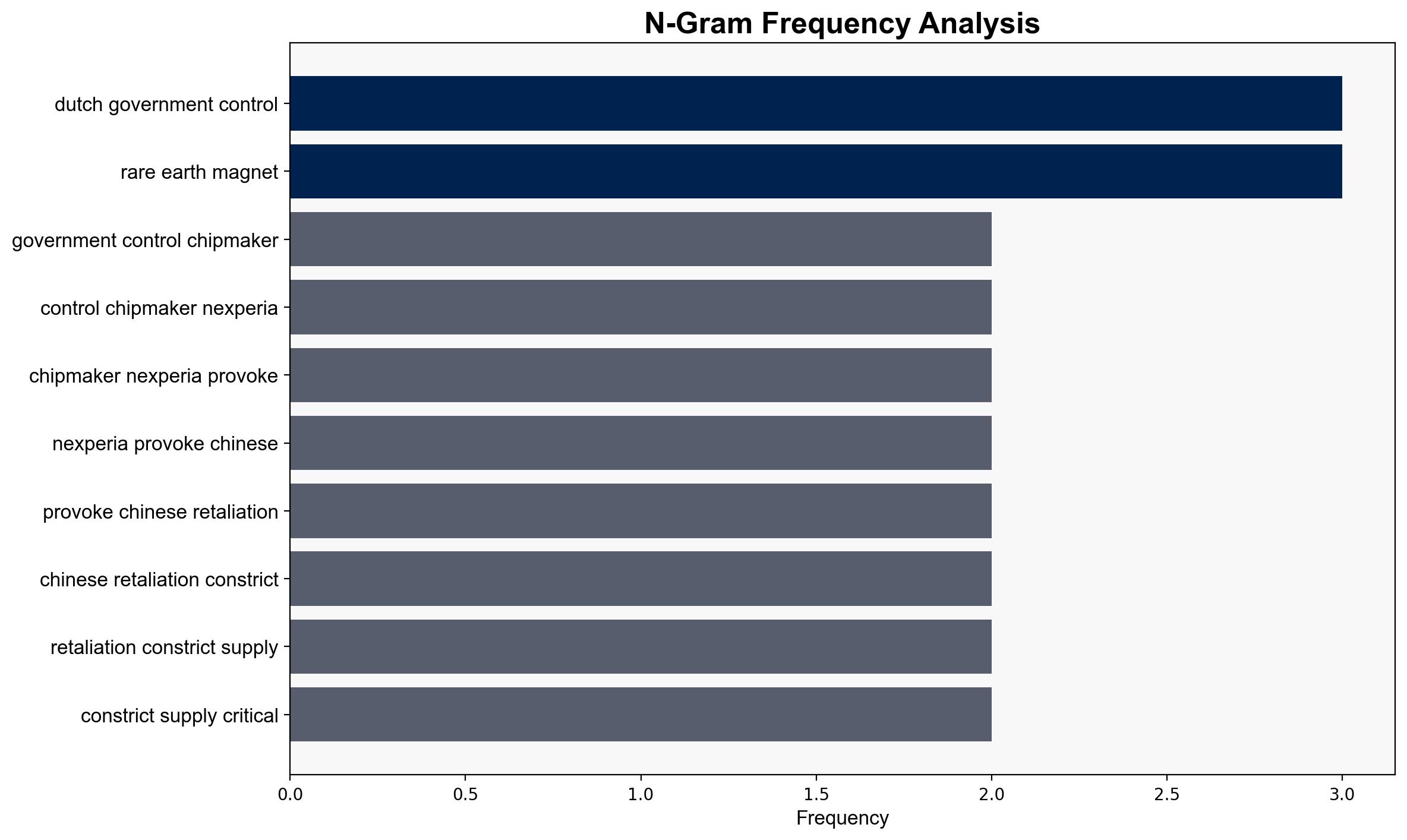Indian carmakers on alert after Dutch takeover of China-owned Nexperia triggers global chip crunch – Livemint
Published on: 2025-11-03
Intelligence Report: Indian carmakers on alert after Dutch takeover of China-owned Nexperia triggers global chip crunch – Livemint
1. BLUF (Bottom Line Up Front)
The Dutch government’s control over Nexperia, a China-owned chipmaker, has sparked concerns of a global chip supply disruption, potentially impacting Indian carmakers. The most supported hypothesis suggests that Chinese retaliation could exacerbate the chip shortage, affecting global automotive production. Confidence level: Moderate. Recommended action: Indian carmakers should diversify their supply chains and engage in diplomatic channels to mitigate risks.
2. Competing Hypotheses
1. **Hypothesis A**: The Dutch takeover of Nexperia will lead to Chinese retaliation, significantly constraining the global chip supply, particularly affecting Indian carmakers.
– **Supporting Evidence**: The Dutch government’s control is perceived as a national security move, likely provoking China. Nexperia’s significant market share in critical automotive chips makes it a strategic chokepoint.
2. **Hypothesis B**: The situation will stabilize as diplomatic negotiations between the Netherlands, China, and affected countries, including India, will prevent severe supply disruptions.
– **Supporting Evidence**: Statements from Chinese commerce ministry suggest potential exemptions, and historical precedence of resolving trade disputes through negotiation.
3. Key Assumptions and Red Flags
– **Assumptions**: Hypothesis A assumes China will retaliate economically, while Hypothesis B assumes diplomatic channels will be effective.
– **Red Flags**: Lack of clarity on the Dutch government’s long-term plans for Nexperia. Vague assurances from China regarding exemptions could be misleading.
– **Blind Spots**: Potential for other geopolitical tensions to influence China’s decision-making is not fully considered.
4. Implications and Strategic Risks
– **Economic Risks**: A prolonged chip shortage could lead to increased production costs and delays for carmakers worldwide, impacting global markets.
– **Geopolitical Risks**: Escalation between China and the Netherlands could strain EU-China relations, affecting broader trade agreements.
– **Supply Chain Risks**: Over-reliance on a single supplier for critical components highlights vulnerabilities in global supply chains.
5. Recommendations and Outlook
- Indian carmakers should diversify their chip suppliers to reduce dependency on Nexperia.
- Engage in diplomatic efforts to encourage resolution through international trade organizations.
- Scenario Projections:
- Best Case: Diplomatic resolution leads to minimal disruption, and supply chains adapt quickly.
- Worst Case: Prolonged geopolitical tensions lead to significant production halts and economic downturn.
- Most Likely: Temporary disruptions occur, but negotiations lead to partial restoration of supply chains.
6. Key Individuals and Entities
– Nexperia
– Wingtech Technology
– Dutch Government
– Chinese Commerce Ministry
– Indian carmakers: Maruti Suzuki, Hyundai Motor India, Tata Motors, Mahindra & Mahindra
7. Thematic Tags
national security threats, supply chain disruption, international trade, automotive industry, geopolitical tensions




